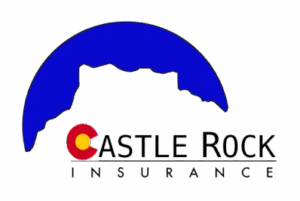Utility line installation contractors in Colorado engage in essential services that involve laying down and maintaining the infrastructure for power lines, water pipes, gas pipelines, and communication cables. These tasks are vital for sustaining the daily necessities and functions of modern living and commerce. Whether they are working on new construction projects or repairs and upgrades for existing systems, these contractors tackle complex jobs that require specialized skills and equipment. Safety and accuracy are paramount, as the consequences of mistakes can range from disrupting community services to causing serious injuries.
Having insurance for utility line installation contractors is crucial for several reasons. Insurance provides a safety net for contractors by covering potential liabilities and financial risks associated with their work. Because these projects often involve hazardous conditions, the chances of accidents or damage are significant. With insurance, contractors can safeguard their businesses from the financial burden of lawsuits, medical expenses, and property damage claims. This not only stabilizes the business operations but also reinforces trust with clients and stakeholders, knowing that the contractor is prepared for unforeseen circumstances.
Utility line installation contractors in Colorado should consider several types of insurance to ensure comprehensive coverage. General liability insurance is essential for covering third-party injuries and property damage. Workers’ compensation insurance is also important, as it can cover medical bills and lost wages for employees injured on the job. Commercial auto insurance is necessary if company vehicles are used for transporting equipment and personnel. Additionally, professional liability insurance can protect against errors and omissions in the services provided. Having the right mix of these insurances can help contractors operate smoothly while minimizing risks to their business.
How Much Does Insurance Cost for Utility Line Installation Contractors in Colorado?
Insurance costs for utility line installation contractors in Colorado can vary widely based on several factors, including the size of the business, the scope of work, and the specific coverages required. Generally, contractors can expect to pay anywhere from $2,000 to $10,000 annually for a comprehensive insurance package that includes general liability, workers’ compensation, and commercial auto insurance. High-risk projects or those involving specialized equipment may push costs even higher. It’s crucial for contractors to obtain quotes from multiple insurers to ensure they are getting the best rates tailored to their business needs.
Working with local Colorado-based insurance brokers like Castle Rock Insurance can provide significant advantages. Local brokers understand the unique risks and regulatory requirements specific to Colorado, which can lead to more accurate and competitive pricing. Castle Rock Insurance, for example, offers personalized service that helps utility line installation contractors identify the right coverage at the right price. By leveraging local expertise, contractors can ensure they are adequately protected while potentially saving on their insurance premiums.
Protect Your Utility Line Installation Contractors Business: Get a Quote Today!
Castle Rock Insurance is a top choice for utility line installation contractors seeking reliable business insurance in Colorado. With a focus on commercial coverage, Castle Rock stands out for its access to over 50 personal and residential insurance carriers. This extensive network allows them to offer tailored solutions that meet the unique demands of utility line contractors. Their expertise in commercial insurance ensures comprehensive protection against risks like equipment damage, liability issues, and work-related injuries. By partnering with Castle Rock, contractors benefit from specialized policies designed to safeguard their business operations, ensuring peace of mind and financial security in a highly specialized field.





